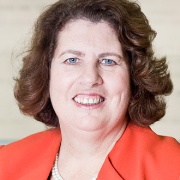
YES
In March, Pulse reported that for the first time, female GPs outnumbered male GPs in England, and over the last decade numbers of female GPs have grown by more than 50%. We also know that 70% of medical school graduates are women, and half of all graduates will become GPs. If you tot up the numbers on the back of an envelope, as I have, then in a generation we might have twice as many female as male GPs.
Where will this leave our male patients who want to discuss ‘sensitive’
or ‘private’ problems? Men have always been wary of seeing the doctor in the first place, a situation that may deteriorate if there are fewer male doctors around.
Some skills like minor surgery and joint injections, for no apparent reason, seem to be predominantly attended to by men. Will they fade away, or will female GPs learn those skills? We also need to consider cover for practices when some women, as is entirely reasonable, take time out for maternity leave.
But this is a side issue. We have too few GPs in general and we are missing
a trick if we don’t look at recruiting more male graduates. The male ego, fragile as it is, will often prefer the cut and thrust of hospital specialties to the perceived cardigan of general practice.
One solution may lie many years before we even become GPs: respected male role models throughout medical school, emphasising the strengths and challenges of general practice.
Perhaps a decade ago, the legendary (or mythical) golden years that my cohort missed out on, a male medic would have quite reasonably chosen to go into general practice for the income and the family-friendly timetable.
Back then the earnings looked good, the pension was gold plated, and with out-of-hours working made optional, the work/life balance was great. The wallet
of the private sector, with a public sector work ethic; what could be better?
That may have been the case then, but it’s not now. Every GP reading this will have seen their workload balloon, their income drop and their patience wear thin over the last year or so. Our status and earnings have dropped in tandem in the last decade. Gone are the days when a GP could send their children to private school, and enjoy three holidays a year.
If you’re the main breadwinner, for the hours and the stress, it might be easier
to be an investment banker.
So, more male GPs? Yes please. And more GPs in general? Of course.
Dr Oliver Starr is a locum GP in Hertfordshire and London.
NO

The NHS is a success story in terms of gender equality – and general practice should be congratulated for leading the way.
This is one area where we are streets ahead of the corporate world.
But it would be a shame if the fact that there are now slightly more female GPs for the first time is seized on as another excuse to criticise women GPs who work part time.
Every profession should be able to accommodate women having children. Nursing is female dominated, but female nurses don’t face the same criticism as female GPs.
Any doctor who chooses general practice as a specialty is certainly not doing it for an easy ride. A woman’s hard work and commitment to patients – or, indeed, their ambition – does not grind to a halt once they have a family.
What we should be concerned about is how to overcome the hurdles that are preventing thousands of GPs – male and female – from returning to the NHS.
We should be targeting female GPs who have ceased practising in order to have children and family doctors who have gone to work overseas.
At the moment, GPs wanting to return after two years away must gain entry to
a local ‘performers list’ of approved family doctors.
This can involve an interview, an exam and working under supervision in a surgery for no or little money. It’s an incredibly long and torturous process, and off-putting to many.
The RCGP is in talks with the Department of Health and NHS England about lifting some of the barriers. However, the real solution lies in long-term investment in general practice.
Despite around 90% of all NHS patient contacts taking place within general practice, funding is at an all-time low of 8.39%.
The RCGP is calling for an urgent rise in funding to 11% by 2017. This would allow us to create more GP posts, both part-time and full-time, provide more appointments, longer slots and safer care for all our patients.
If general practice was properly funded and supported, it would encourage more people of both genders to enter our profession.
We need more GPs, full stop. Focusing on recruiting more male GPs ignores the wider issue.
Dr Maureen Baker is chair of the RCGP and a GP in Lincoln

















